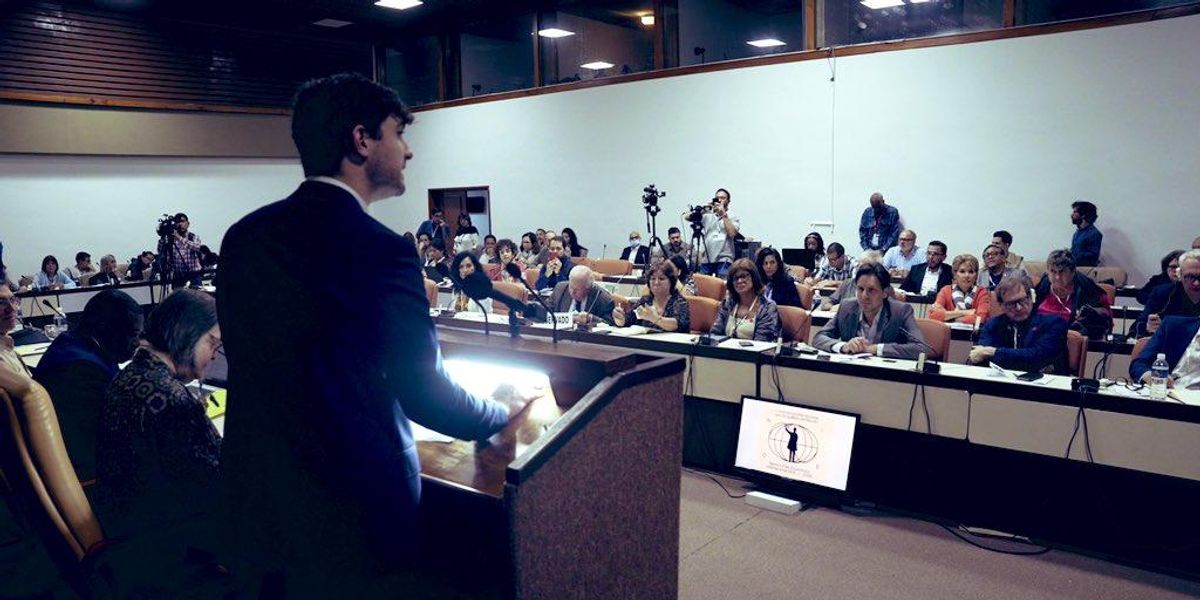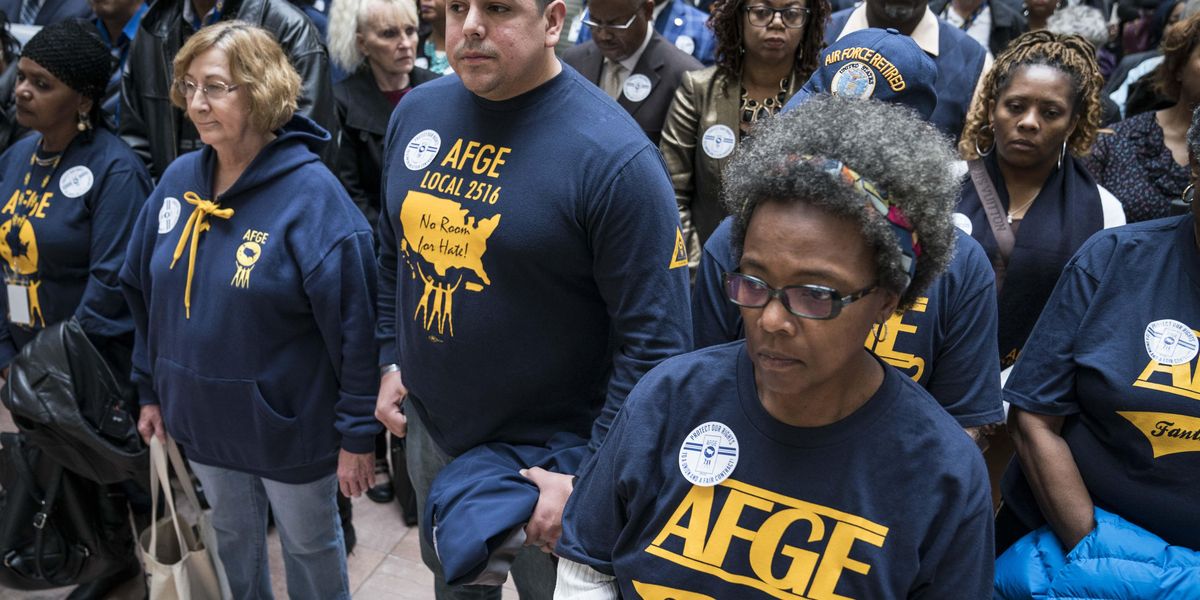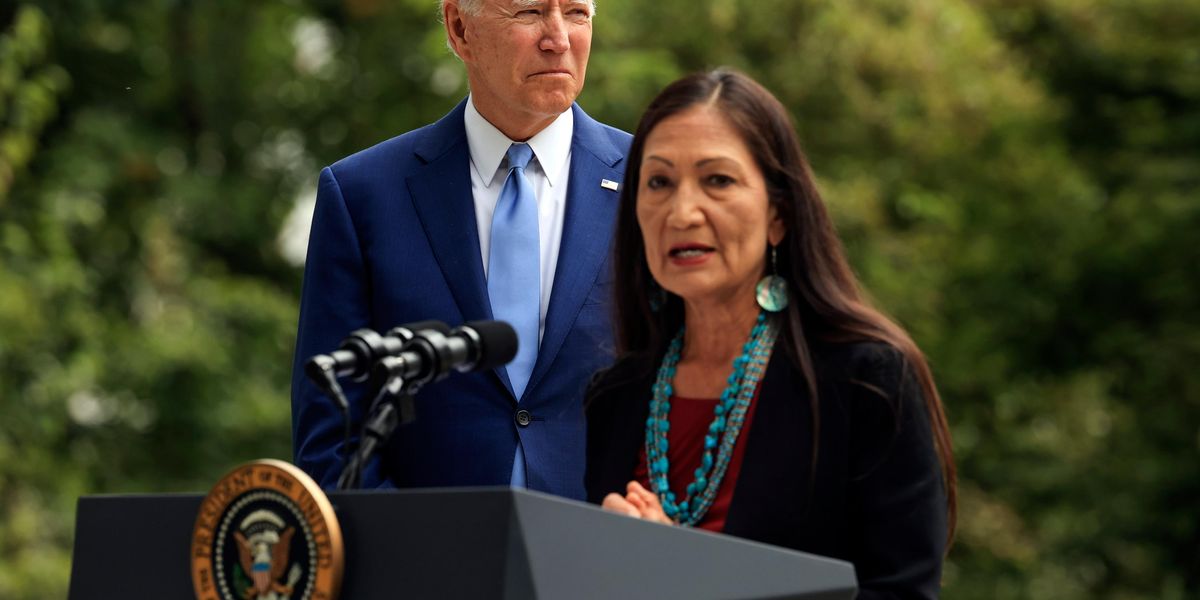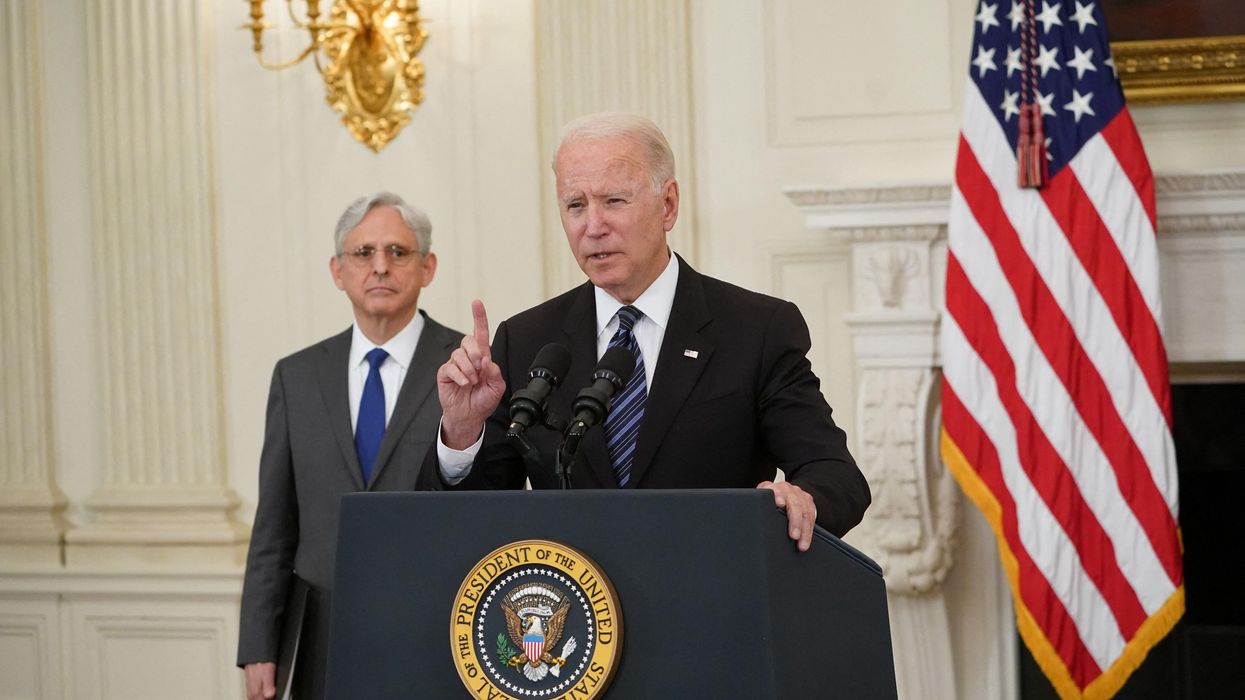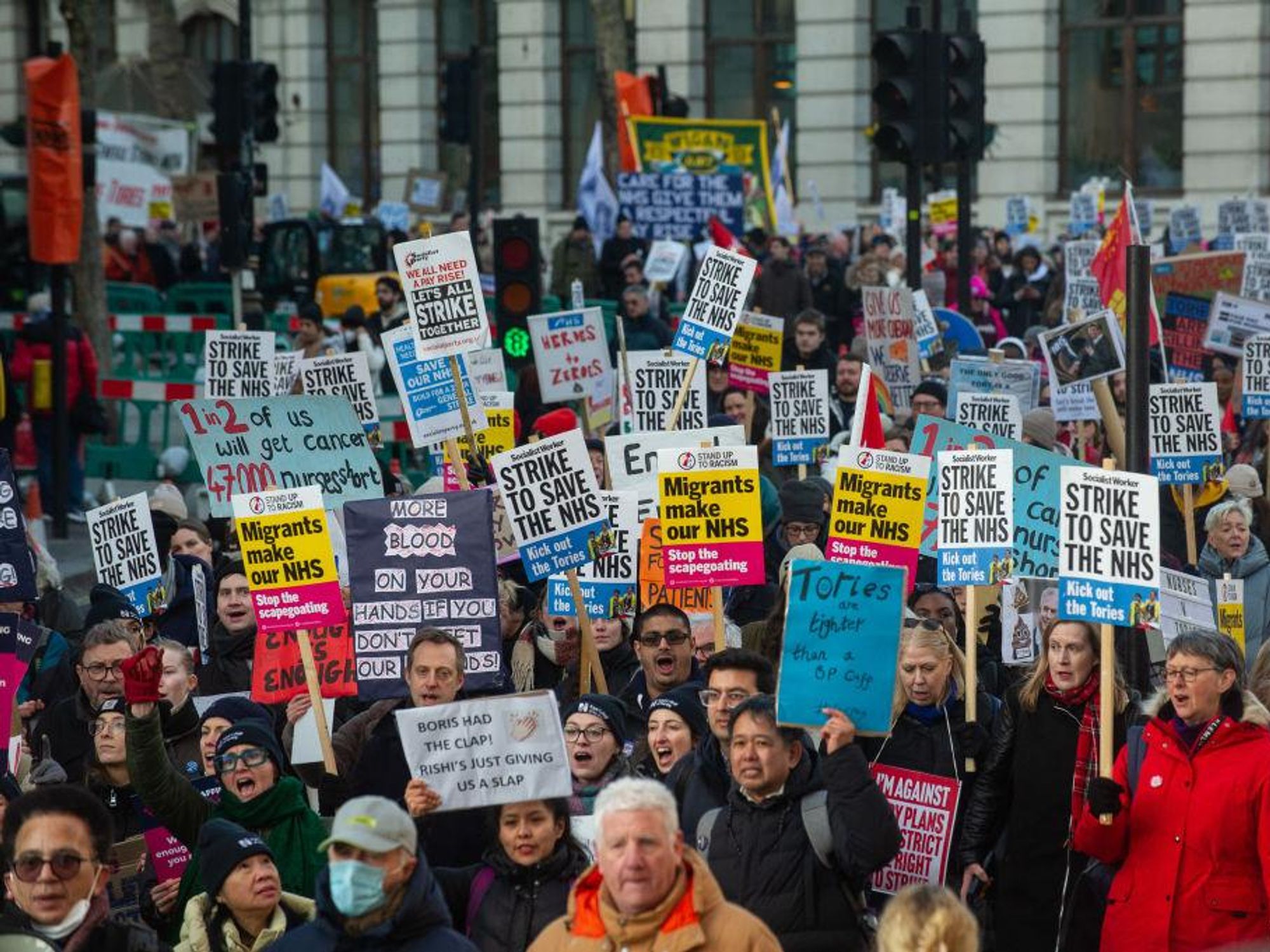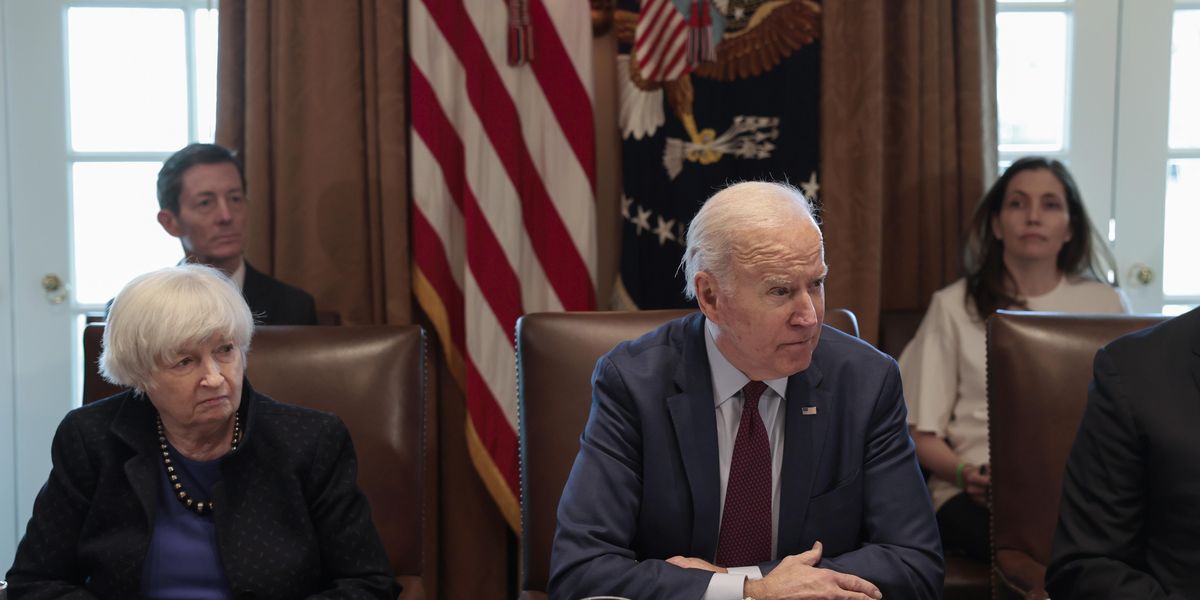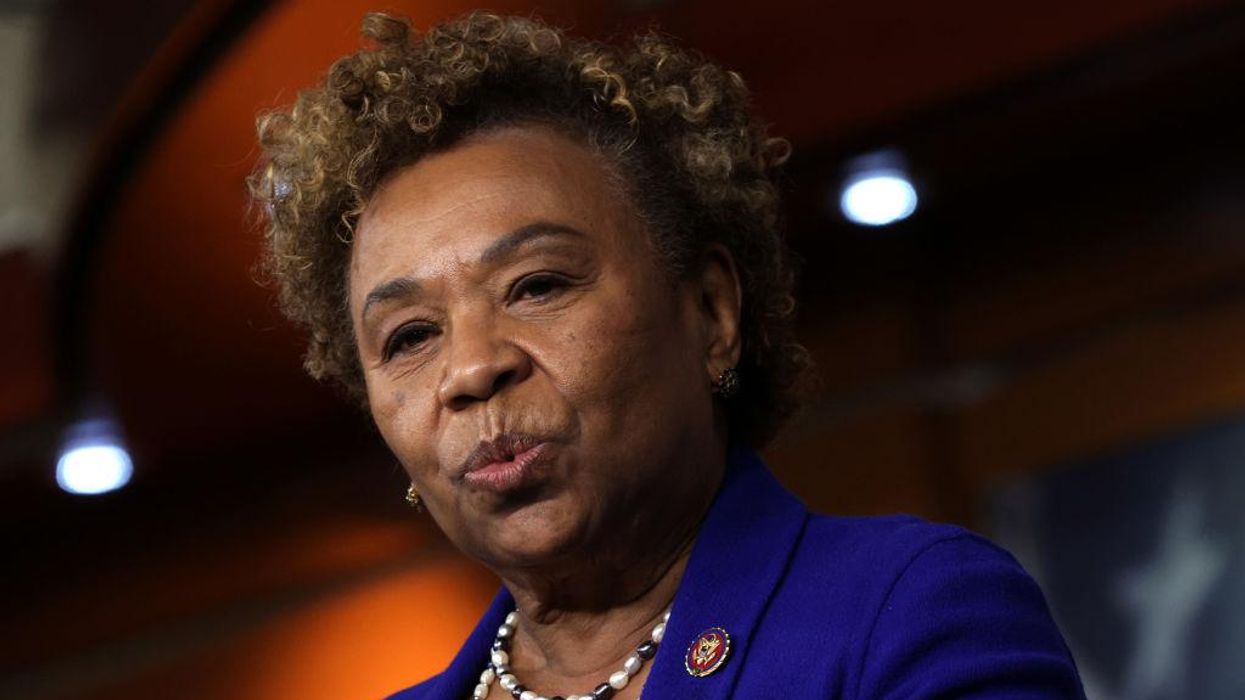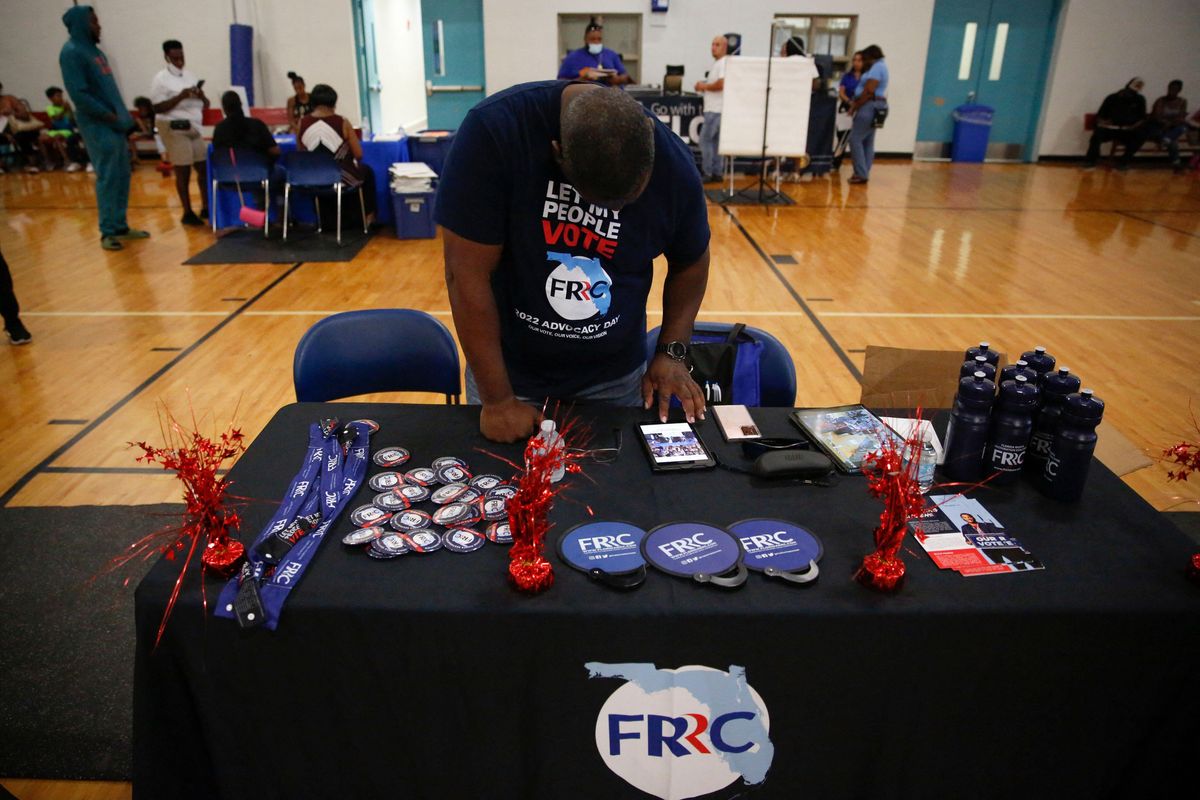
Civil rights advocates on Friday condemned the Republican-led Florida Legislature for passing another voter suppression bill that far-right Gov. Ron DeSantis, a likely GOP presidential candidate for 2024, is expected to sign into law.
The Florida House passed Senate Bill 4B by a margin of 77-33 on Friday, two days after state senators approved the bill in a 27-12 party-line vote. The legislation seeks to expand the authority of the Office of Statewide Prosecution (OSP) to pursue charges for alleged election-related crimes. The OSP reports to Republican Attorney General Ashley Moody, a close ally of DeSantis.
A coalition of voting rights groups—including NAACP Florida, ACLU of Florida, Common Cause Florida, and the Brennan Center for Justice—submitted joint testimony opposing S.B. 4B on Thursday. In a joint statement issued after its passage on Friday, the coalition warned that the legislation “risks impacting people with past convictions who will continue to be arrested and prosecuted in the criminal legal system for honest mistakes about their voter eligibility.”
“The office made arrests, claimed jurisdiction, and is now seeking to change the law after the courts said no.”
“This proposal is a solution in search of a problem,” the coalition said. “There is no legitimate need to waste taxpayer dollars and state resources by expanding the Office of Statewide Prosecution for these purposes. This bill is being heard and swiftly passed only because the governor desires to expand his prosecutorial authority over Floridians who are lawfully trying to exercise their right to vote.”
S.B. 4B comes as DeSantis faces rebuke for using Florida’s newly established Office of Election Crimes and Security to arrest 20 formerly incarcerated individuals who believed they were eligible to vote—thanks to Amendment 4, a voter-approved 2018 referendum re-enfranchising 1.4 million people with past felony convictions—for alleged “voter fraud” last year.
Most of the people who were arrested for improperly casting ballots had been approved by the Florida Department of Elections, which mailed them voter registration cards prior to the 2020 election. Despite this, all of them have been slapped with felony charges carrying prison terms of up to five years and fines of up to $5,000. The arrests, unsurprisingly, have reportedly scared away many potential voters.
“While one of the cases has been settled, judges have in many cases dismissed charges and some local state attorneys have been reluctant to pursue charges,” Florida Politics reported Friday. “Democrats have questioned if the proposed legislation will allow the statewide prosecutor to take over cases that local state attorneys won’t try.”
\u201cBREAKING: Florida’s state House passed SB4B. Rather than giving unchecked power to prosecutors to criminalize people with past felony convictions for making honest mistakes, state officials should find ways to fix the complex voting system. https://t.co/EFGlWj04Rk\u201d— Brennan Center (@Brennan Center)
1676051089
Florida Rep. Anna Eskamani (D-47) alluded to body cam footage showing that many of those arrested—and some of the police officers—were confused about the nature of the charges.
“We had folks in Orange County that, after that amendment passed, they called the Supervisor of Elections, they called the Division of Elections, and were told they could vote,” she told Florida Politics. “There’s a reason why these cases are being tossed out.”
According to the news outlet, many critics of S.B. 4B view it as “an intimidation tactic to discourage many former felons from registering regardless, even if they are now eligible to do so.”
Florida Rep. Yvonne Hinson (D-20) said that after “citizens served their time, they should be able to have their civil rights restored.” She called the bill “an intentional act by the Legislature to manipulate the judicial process to fit a political position.”
“This bill will create more confusion and disenfranchise eligible voters as part of what’s been a continued effort to intimidate voters—especially returning citizens—from participating in our democracy.”
The coalition of voting rights groups opposed to S.B. 4B shared the Democratic lawmakers’ assessments.
By increasing the OSP’s power, this legislation “would remove cases from local prosecutors and prosecute minor occurrences of mistaken voters rather than having to prove a widespread voter conspiracy,” the groups lamented. “It would also seek to circumvent three Florida courts’ decisions which have rejected the OSP’s argument for more expansive jurisdiction.”
“The office made arrests, claimed jurisdiction, and is now seeking to change the law after the courts said no,” the coalition continued. “We have grave concerns about the potential for this office targeting returning citizens for honest mistakes about their eligibility to vote in an effort to intimidate communities of color.”
“All voters should have equal, meaningful, and non-burdensome access to the ballot box,” said the coalition. “To date, Florida has failed to effectively and efficiently verify people’s eligibility under the current system, and the state’s failure has disproportionately harmed Black Floridians.”
According to the rights advocates, the state has refused for years “to provide sufficient guidance to those looking to determine whether they can vote. At the same time, government officials have allowed and, in some instances, outright encouraged people with past felony convictions to register to vote without verifying their eligibility to do so.”
“This bill will create more confusion and disenfranchise eligible voters as part of what’s been a continued effort to intimidate voters—especially returning citizens—from participating in our democracy,” the groups warned. “Rather than trying to give unchecked power to prosecutors who report to the governor and his political appointees, state officials should instead find ways to fix the complex and unnavigable system for returning citizens to determine their eligibility and invest resources to solve current known problems.”



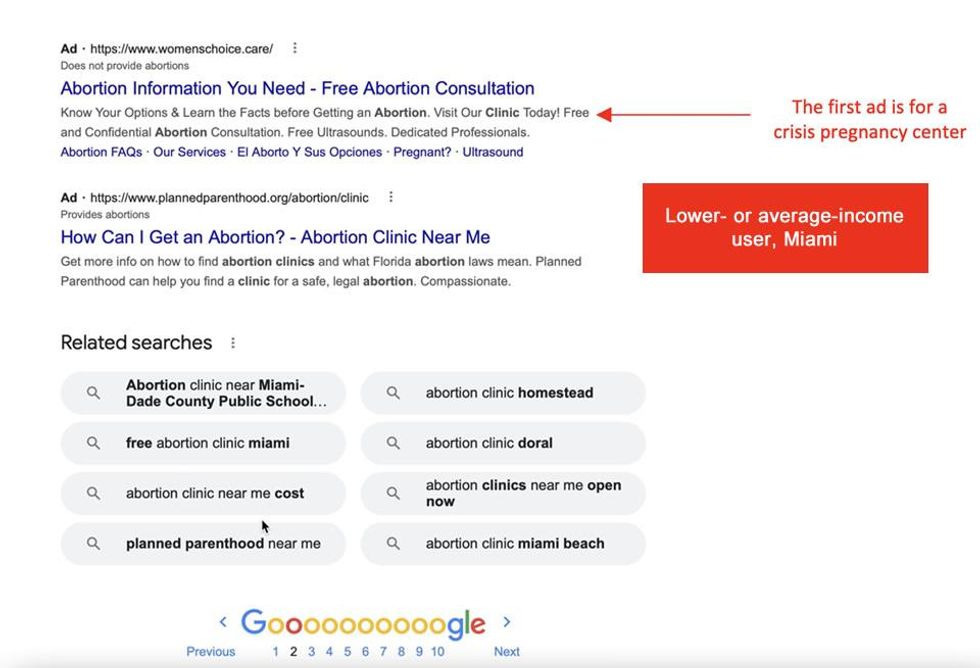 In Miami, the first ad shown to an average- or lower-income Google user searching for ‘Abortion clinic near me’ is for a crisis pregnancy center.(Photo: Tech Transparency Project)
In Miami, the first ad shown to an average- or lower-income Google user searching for ‘Abortion clinic near me’ is for a crisis pregnancy center.(Photo: Tech Transparency Project)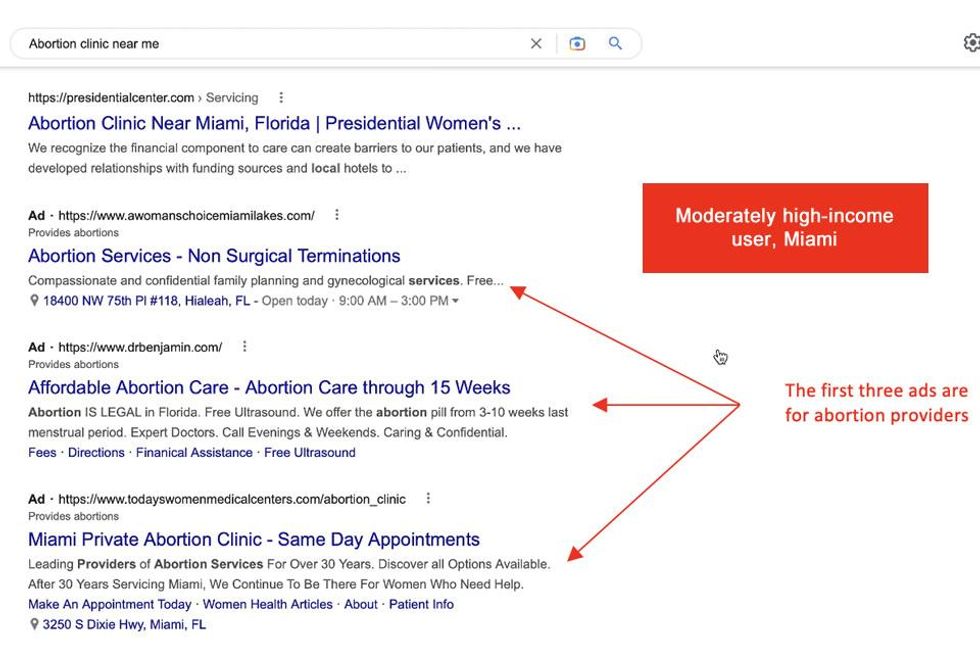 In Miami, the first three ads shown to a moderately high-income Google user searching for ‘Abortion clinic near me’ are for abortion providers.(Photo: Tech Transparency Project)
In Miami, the first three ads shown to a moderately high-income Google user searching for ‘Abortion clinic near me’ are for abortion providers.(Photo: Tech Transparency Project)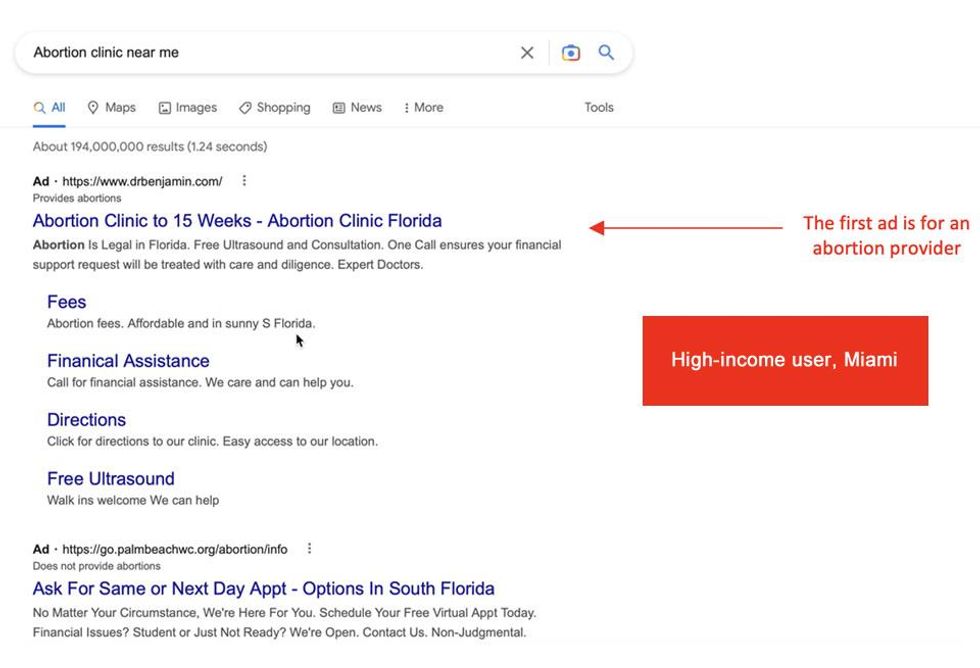 In Miami, the first ad shown to a high-income Google user searching for ‘Abortion clinic near me’ is for an abortion provider.(Photo: Tech Transparency Project)
In Miami, the first ad shown to a high-income Google user searching for ‘Abortion clinic near me’ is for an abortion provider.(Photo: Tech Transparency Project)




